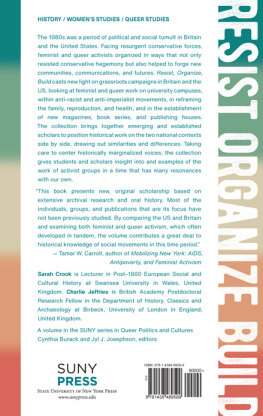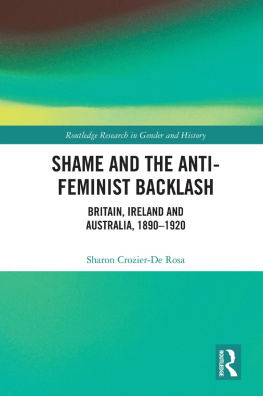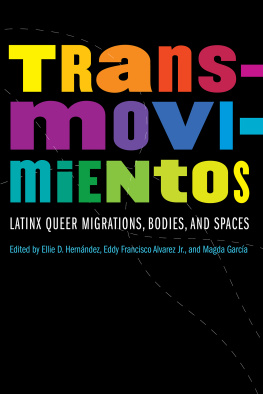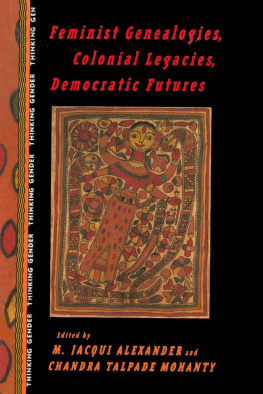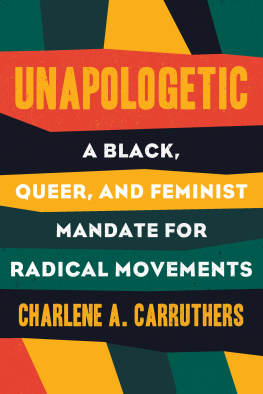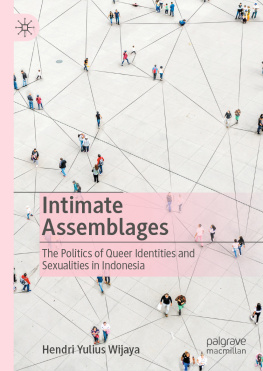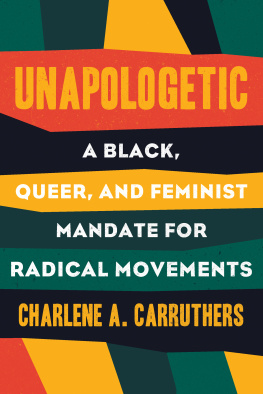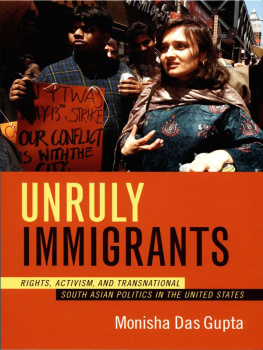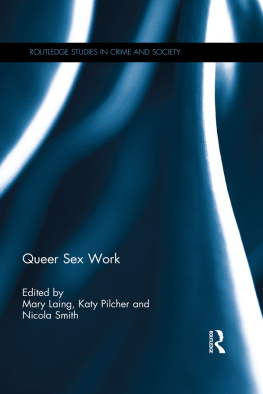RESIST
ORGANIZE
BUILD
RESIST
ORGANIZE
BUILD
FEMINIST AND QUEER ACTIVISM IN BRITAIN AND
THE UNITED STATES DURING THE LONG 1980S
EDITED BY
SARAH CROOK AND CHARLIE JEFFRIES

Published by State University of New York Press, Albany
2022 State University of New York
All rights reserved
Printed in the United States of America
No part of this book may be used or reproduced in any manner without written permission. No part of this book may be stored in a retrieval system or transmitted in any form or by any means including electronic, electrostatic, magnetic tape, mechanical, photocopying, recording, or otherwise without the prior permission in writing of the publisher.
For information, contact State University of New York Press, Albany, NY
www.sunypress.edu
Library of Congress Cataloging-in-Publication Data
Names: Crook, Sarah, 1988 editor. | Jeffries, Charlie, editor.
Title: Resist, organize, build : feminist and queer activism in Britain and the United States during the long 1980s / edited by Sarah Crook and Charlie Jeffries.
Description: Albany, NY : State University of New York Press, [2022] | Series: SUNY series in queer politics and cultures | Includes bibliographical references and index.
Identifiers: LCCN 2022005688 | ISBN 9781438489599 (hardcover : alk. paper) | ISBN 9781438489605 (ebook)
Subjects: LCSH: FeminismGreat BritainHistory. | Gay liberation movementGreat BritainHistory. | ConservatismGreat BritainHistory. | FeminismUnited StatesHistory. | Gay liberation movementUnited StatesHistory. | ConservatismUnited StatesHistory.
Classification: LCC HQ1191.G7 R37 2022 | DDC 305.420941dc23/eng/20220404
LC record available at https://lccn.loc.gov/2022005688
10 9 8 7 6 5 4 3 2 1
Contents
Sarah Crook and Charlie Jeffries
Part I
Student Politics and the Body Politic
Michael S. Hevel and Charles J. Thompson
Katherine Rye Jewell
Part II
Anti-Racist, Anti-Imperialist, Anti-Borders Action
Jade Bentil
Charlotte Lydia Riley
Part III
Families, Reproduction, and Health
Nora Kassner
Kate Turner
Tamar Holoshitz
Katie Batza
Part IV
Grassroots Images, Speech, and Power
Taous R. Dahmani
Julie R. Enszer
Flora Dunster
Sarah Crook
Charlie Jeffries
SUNY series in Queer Politics and Cultures
Cynthia Burack and Jyl J. Josephson, editors
Acknowledgments
This book is the result of several years of collaboration and enthusiasm across continents and time zones. We would like to thank our contributors for their expertise, patience, and work. It has been a pleasure to develop this book with them. We are enormously grateful to our editor at SUNY, Rebecca Colesworthy, who has been efficient, helpful, and wise throughout. Thank you also to Sneha Krishnan, Martin Johnes, and Christoph Laucht for invaluable insights and advice.
This book has been shaped by our students questions and interests: thank you to students at Swansea, Oxford, Queen Mary, University of London, Birkbeck, UEA, and Cambridge for your curiosity and positivity.
Sarah would like to thank Calum, for everything.
Charlie would like to thank Christabel for all the support, ideas, and care.
Introduction
Thinking through and beyond the 1980s
S ARAH C ROOK AND C HARLIE J EFFRIES
Writing in Lesbians Talk Making Black Waves, a book that sought to document the history and experiences of Black lesbians living in Britain, Araba Mercer, a publisher for Sheba Feminist Press who had been involved with Manchesters Black Womens Group in the mid-1980s, reflected that There seemed to be so much more going on in the 1980s, everything was new, things were possible. There was so much dialogue and political theorising. Here we reaffirm the 1980s as a period of activist dialogue, creativity, and energy in the face of the rise of the New Right. As Mercer said, things were going on. In spring 1979, the inaugural National Black Womens Conference was held in London; in autumn that year tens of thousands of women and men took to the streets of London to defend womens access to abortion; in 1980, Sheba Feminist Press was founded to prioritize the work of marginalized women. On the precipice of the new decade, then, new organizations and lines of defense were being established. That is not to say that the new decade was welcomed with optimism by activists in Britain. This is perhaps unsurprising. The general election of May 1979 had ushered in a Conservative government led by Margaret Thatcher, which would go on to cut back the welfare state, disempower unions, and curb immigration. This conservative climate would provide the background against which British activistsboth those concerned with the topics of this collection, and other groups, like the Campaign for Nuclear Disarmament and the trade unionswould agitate over the coming years. In the 1980s, activists established new frontiers of resistance, organized around new demands, and built new collaborations. New ways of thinkingand, indeed, arguingabout liberationist projects would develop. New communities, campaigns and solidarities would crystallize. Some of these communities and campaigns of resistance are the subjects of this edited collection.
Despite their decades of mobilization, feminist and queer activists in the United States also approached the 1980s with trepidation. President Jimmy Carter was shortly to be ousted by Republican Ronald Reagan, who rode into the White House on a wave of electoral support fostered by the New Right, a multifaceted conservative movement that included reactionaries of many stripes. Social conservatives fueling the New Rights electoral success via wide-reaching televangelism railed against the gains of the civil rights, feminist, and gay liberation movements of the 1970s, citing such activist successes as Roe v. Wade and more visible queer communities in American cities as signs of moral decline.
As in the United Kingdom, however, activists were not only responding to these painful political developments, fighting fires as they arose, but also drawing on histories of activism, and imagining and building futures beyond the violence of the present. It is these activisms that this edited collection draws to the fore. How did feminist and queer organizations of the 1980s simultaneously resist immediate threats, and establish theory, organizations, and structures that would support their communities in the years to come? How can we draw from these histories to understand how to resist and build in the wake of a recharged far-right movement across both contexts?
This collection brings together chapters that set out some of the sites, causes and organizations that activists used to both resist the emergencies of the present and forge forward in creating lasting social change in the 1980s. The book emerged from a need the editors identified as teachers: our students, often activists themselves, look to the past to explain and inspire their worlds, and have increasingly sought to explore beyond the better-known historical terrain of the period. It also emerged from our interests as researchers. As historians of Britain (Crook) and the United States (Jeffries), we wanted to bring scholars and histories of British and American activisms together: not to compare, but to position alongside one another and to see what intellectual synergies might emerge. Informal conversations had highlighted points of transatlantic convergence and difference in the activist histories we worked on. What sort of productive energies, we wondered, would be revealed if we brought work from the United States and the United Kingdom together, and what might be illuminated if we introduced American and British audiences to more fine-grained activist histories of the period in each others areas?
Next page
